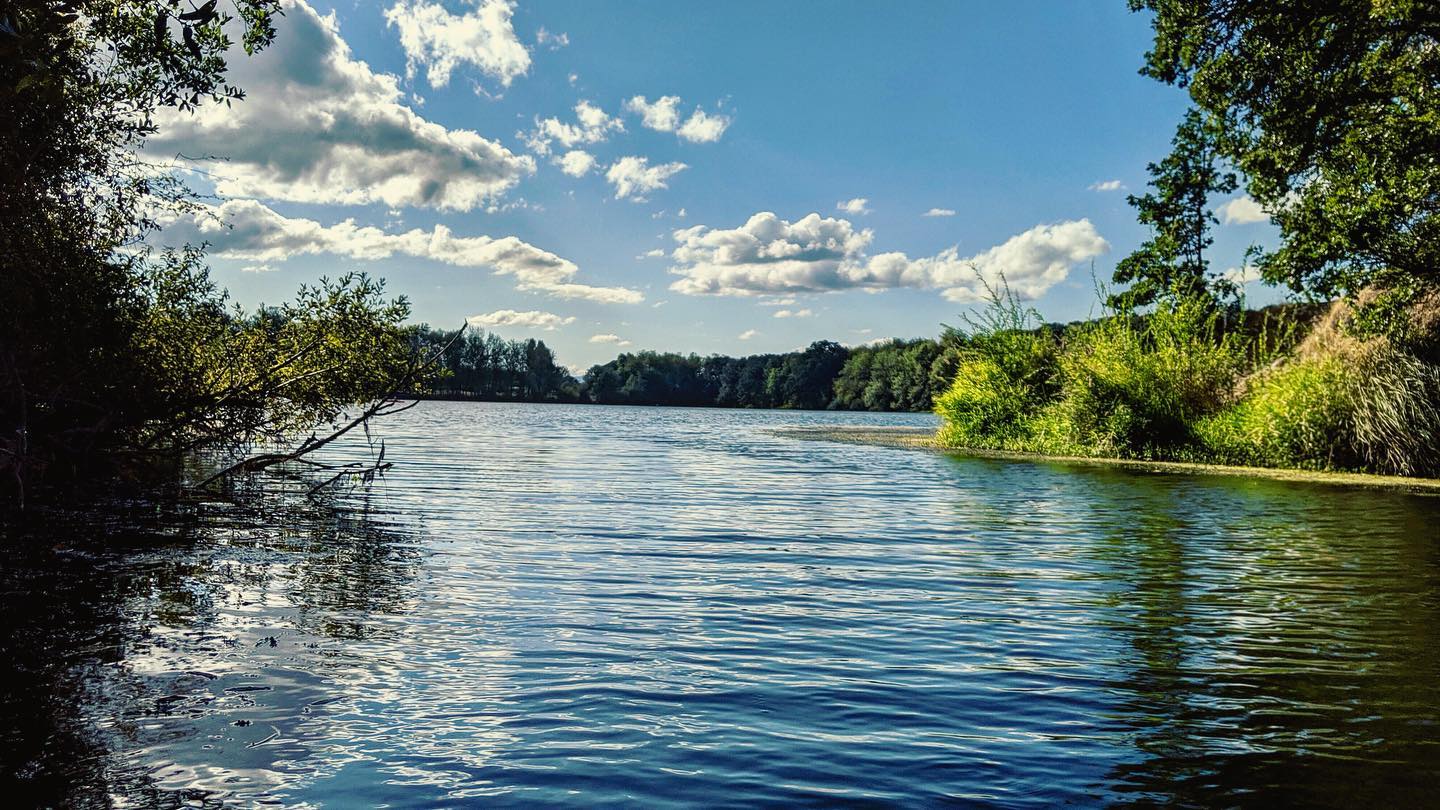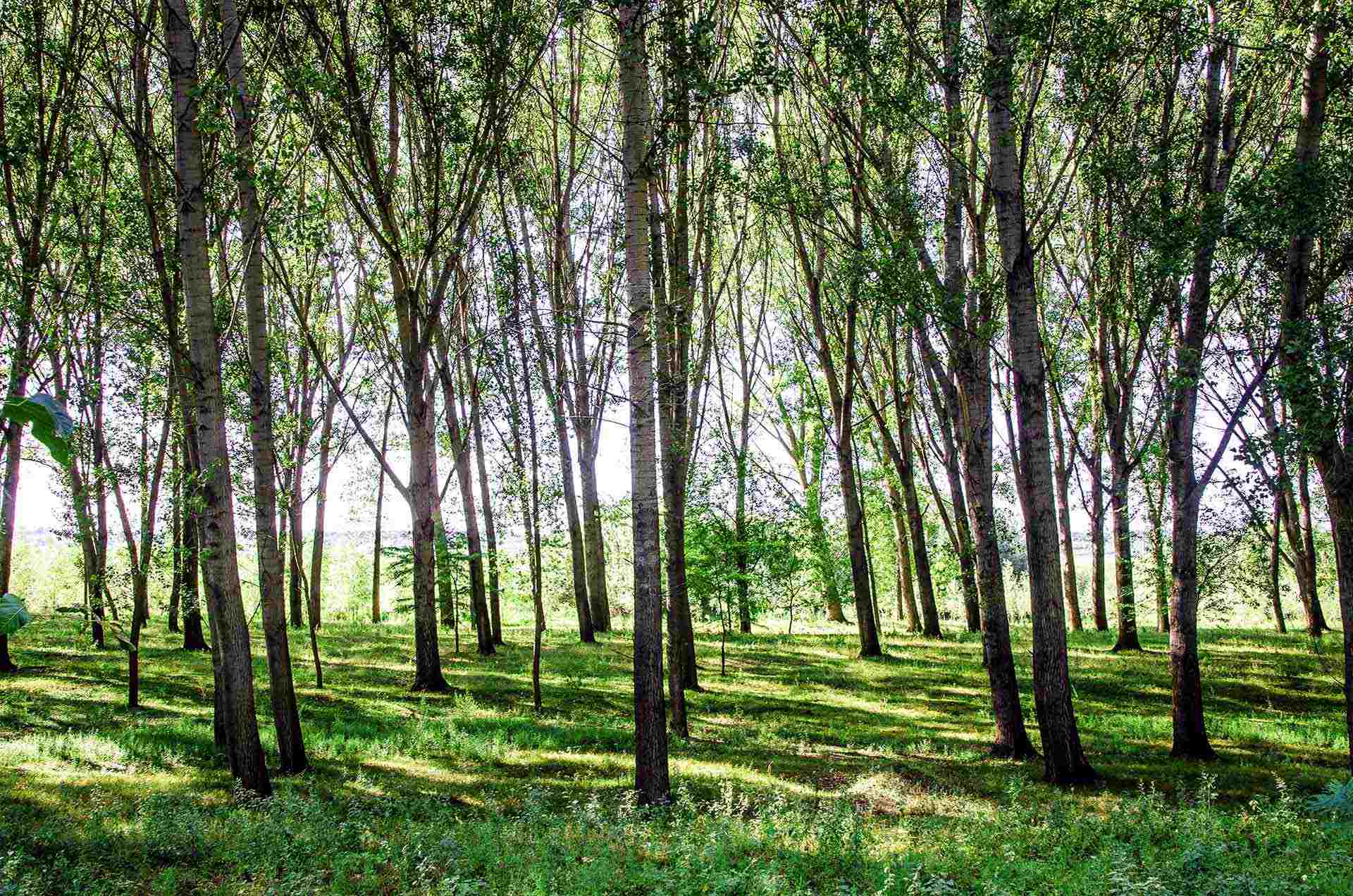
Freeway lakes, also known as highway lakes, are a fascinating phenomenon that can be found in various parts of the world. These man-made bodies of water are created when highways or freeways are constructed over low-lying areas or depressions that would otherwise collect rainwater. Rather than redirecting the flow of water or constructing drainage systems, engineers make use of these natural depressions and convert them into lakes.
Freeway lakes offer a unique and unexpected sight for travelers passing by. The contrast between the bustling traffic and the serene shimmering waters creates a surreal and captivating scene. But there is more to these freeway lakes than meets the eye. In this article, we will explore 13 extraordinary facts about freeway lakes that will leave you in awe of their engineering marvel and environmental significance. So, fasten your seatbelt and join us on this journey to discover the hidden wonders of freeway lakes!
Key Takeaways:
- Freeway Lakes are man-made water bodies formed by highways, attracting wildlife and offering recreational opportunities, showcasing the harmony between urban development and nature.
- These unique urban oases serve as symbols of environmental conservation, inspiring creativity and research while providing a serene escape within bustling cityscapes.
The Creation of Freeway Lakes
Have you ever wondered how Freeway Lakes come into existence? Well, it turns out that these lakes are formed when sections of highways or roads are built below the natural ground level, creating depressions that collect rainwater.
The Enigmatic Origins
The origins of Freeway Lakes can be traced back to the urban development and infrastructure boom of the mid-20th century. As cities grew, the need for efficient transportation led to the construction of highways and roads, inadvertently giving birth to these unique water bodies.
Mini-Ecosystems Unveiled
Despite their man-made origins, Freeway Lakes have become home to a variety of wildlife. These water bodies often attract diverse species of birds, amphibians, and even fish, creating mini-ecosystems within the urban landscape.
Landscaping Wonders
Many Freeway Lakes are beautifully landscaped, with surrounding parks and walkways. These green spaces provide a serene environment for recreational activities, allowing people to connect with nature amidst the bustling cityscape.
Alleviating Flood Risks
One of the unintended benefits of Freeway Lakes is their ability to help alleviate flooding during heavy rainfall. These lakes act as temporary storage for excess rainwater, minimizing the risk of flooding and protecting nearby areas.
Aesthetic Appeal
The presence of Freeway Lakes adds a touch of visual beauty to the otherwise concrete-dominated landscape. The tranquil waters reflecting the surrounding skyline create breathtaking vistas that captivate the eyes of passersby.
Unique Recreational Opportunities
Freeway Lakes are not just visually pleasing; they also offer unique recreational opportunities. From boating and kayaking to fishing and picnicking, these water bodies serve as urban havens for outdoor enthusiasts and families alike.
Community Gathering Spaces
Freeway Lakes often become community gathering spaces where people can come together for events, concerts, and festivals. These vibrant social hubs foster a sense of unity and provide a platform for cultural expression.
Environmental Conservation Efforts
Many Freeway Lakes are part of ongoing environmental conservation efforts. These projects aim to improve water quality, restore natural habitats, and promote sustainability, ensuring the long-term health and vitality of these unique ecosystems.
Innovative Design Concepts
The creation of Freeway Lakes has inspired innovative design concepts in urban planning. Architects and engineers now incorporate water features into highway and road construction, enhancing the aesthetic appeal and environmental sustainability of urban infrastructure.
Symbol of Urban Adaptation
Freeway Lakes serve as a symbol of the ability of urban areas to adapt and coexist with nature. They highlight the importance of incorporating green spaces and water elements into city planning to create a harmonious balance between urban development and environmental preservation.
Research Opportunities
Freeway Lakes provide unique research opportunities for scientists and environmentalists. These water bodies allow for the study of aquatic ecosystems within an urban setting, providing valuable insights into biological, chemical, and ecological processes.
A Source of Inspiration
The existence of Freeway Lakes serves as inspiration for artists, writers, and creatives. These urban oases spark imagination and a sense of wonder, reminding us of the extraordinary possibilities that can arise from the intersection of nature and human ingenuity.
So, there you have it – the 13 extraordinary facts about Freeway Lakes. These man-made water bodies have become symbols of urban innovation, environmental conservation, and recreational enjoyment. Explore one yourself and experience the magic of these fascinating aquatic wonders!
Conclusion
Freeway lakes are indeed extraordinary wonders of nature. Their formation through the interaction of highways and natural water bodies creates unique habitats for a variety of plant and animal species. These lakes serve as important ecological corridors, fostering biodiversity and providing valuable recreational opportunities for humans.
But as extraordinary as freeway lakes may be, it’s important to remember that their existence is not without challenges. Pollution from road runoff and invasive species pose significant threats to the delicate ecosystems within these lakes. It is crucial that we take steps to protect and preserve these remarkable natural features for future generations to enjoy.
FAQs
1. What are freeway lakes?
Freeway lakes are bodies of water formed due to the presence of highways. These lakes are typically created when a highway is built over or around an existing water body, leading to a unique combination of natural and man-made elements.
2. How do freeway lakes impact the environment?
Freeway lakes can have both positive and negative impacts on the environment. On one hand, they provide additional habitats for aquatic plants and animals, increasing overall biodiversity. On the other hand, road runoff can introduce pollutants into the lakes, affecting water quality and potentially harming the ecosystem.
3. Are freeway lakes safe for swimming?
Swimming in freeway lakes is generally not recommended due to concerns about water pollution. The runoff from highways can contain various contaminants, including chemicals from vehicles, which may pose health risks to swimmers. It is best to check local advisories and guidelines before considering swimming in a freeway lake.
4. Can freeway lakes be used for recreational activities?
Yes, freeway lakes can be used for recreational activities such as boating, fishing, and bird-watching. Many of these lakes have designated parks or areas where visitors can enjoy various outdoor pursuits. However, it is important to respect any regulations or guidelines in place and take steps to minimize your impact on the delicate ecosystems within these lakes.
5. How can we protect and preserve freeway lakes?
To protect and preserve freeway lakes, it is crucial to minimize pollution from road runoff by implementing effective filtration systems or vegetative buffers. Regular monitoring of water quality, controlling the spread of invasive species, and promoting responsible recreational activities can also help maintain the health and beauty of freeway lakes.
Freeway lakes are truly extraordinary, but there's so much more to explore in the world around us. Discover the joys of recreation in Haverhill, Massachusetts, where sports and leisure activities abound. Immerse yourself in the wonders of nature, uncovering fascinating facts that will leave you in awe. And for those who love outdoor activities, finding the perfect pair of hiking sandals can make all the difference on your next adventure. Keep reading to uncover more captivating stories and insights!
Was this page helpful?
Our commitment to delivering trustworthy and engaging content is at the heart of what we do. Each fact on our site is contributed by real users like you, bringing a wealth of diverse insights and information. To ensure the highest standards of accuracy and reliability, our dedicated editors meticulously review each submission. This process guarantees that the facts we share are not only fascinating but also credible. Trust in our commitment to quality and authenticity as you explore and learn with us.


